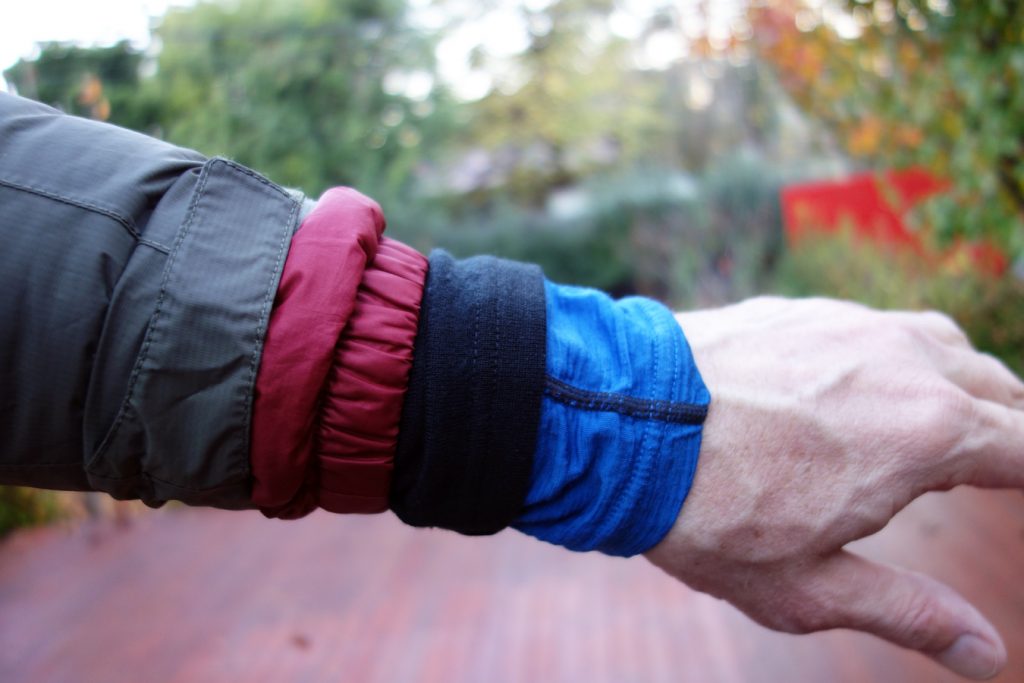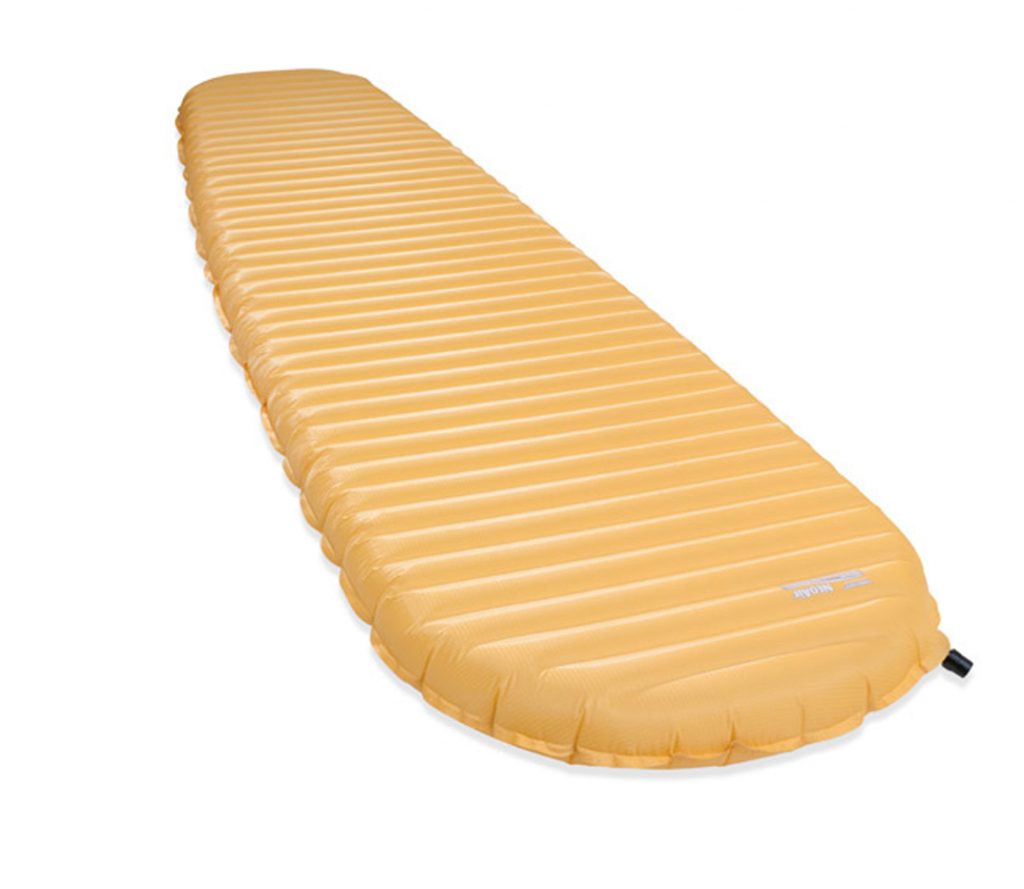Difficulty sleeping on the trail? Here’s why
Whether you hike or not, many of us can relate to sleeping away from home and having a poor nights sleep. This is also one of the most common complaints I hear from hikers who camp overnight. There can be a number of reasons for poor sleeping on the trail and while some of them can be obvious like gear related issues, there are also physiological impacts about which you may, or may not, be aware that explain poor sleep patterns, particularly on shorter trips. In this article we will look at what those are.
Warmth
Couples out there can relate to this one. In many relationships it is not unusual for partners to have different comfort levels as far as preferred sleeping temperatures are concerned. Usually, but not always, females will get colder more quickly. This will not be new information to most of you and is not just anecdotal but backed up by a number of studies.
In practice what this means is that to have a good night sleep, women will often need to have a warmer sleep system than men either by using a warmer sleeping bag, using a sleeping mat with a higher R value or wearing extra layers to keep warm.
Sleeping bags sold in Europe, Australia, and progressively more often in the USA, will come with a warmth rating that uses the European EN 13537 standard. If you want a good night sleep make sure your layering system and sleep system are suitable for the conditions in which you are going to be sleeping.

Layer for comfort. Everyone’s threshold to hot and cold is different so choose a series of layers that suit you
Comfort (non warmth related)
When we progress from day hiking to overnight hiking we often move from our comfortable bed at home into something that is usually not quite as luxurious. Now I’m a side sleeper and due to injuries to both my shoulders, I will often toss and turn during the night. While I will usually have a good sleep, it is often restless. I changed from a self-inflating sleeping mat to an inflatable sleeping mat a little over four years ago and this has made a huge difference to my night time comfort on the trail.
If you are just trying out camping for the first time or you don’t enjoy overnight trips, look at your sleep system and see if it can be improved. Borrow different equipment from friends to see what works for you.
At home I agonise over the type of pillow I use and surprisingly enough after spending years buying very expensive pillows, I have now settled on one that costs less than $20 AUD and it’s the best pillow I have ever had. Many hikers will often give little thought to their pillows but it’s worthwhile trying different options to see what suits. Usually I will use a lightweight dry bag filled with my spare clothes and find this works very well. However if you need a slightly more luxurious option then there are a number of lightweight options on the market that may suit you. These pillows are usually not expensive so try some out to see what suits.

Thermarest Neo Air Xlite inflatable sleeping mat
First Night Effect
If you are new to sleeping outdoors in a tent you may be worried about all the strange noises; the wind blowing your tent, the animal noises that always seem to be just outside, and the new environment that includes all the gear that is different from what you’re used to sleeping in from night to night. While all the environmental factors can be an issue themselves, there is a physiological effect called the ‘First Night Effect’ that is probably causing the problem.
First Night Effect is an evolutionary safety mechanism that means one half of our brain, usually the left side, stays awake to keep watch in case of danger. While this was essential when we had to worry about getting eaten or attacked by something or someone, this hangover from prehistoric times means that for many, the first night of a camping trip (or in any unfamiliar place) will often result in poor sleep. If all you ever do is single night trips then your body doesn’t have the opportunity to get used to the new environment.
For me the first night sleep of a multi day trip is often the poorest and the longer the trip, the better my sleep patterns become. Unfortunately given that I average less than six hours sleep a night, I am often awake very early in the morning and heading off just after daybreak.
Things that go bump in the night
The first time you camp out at night, particularly by yourself, every little noise outside the tent becomes magnified. To some extent this is a result of the First Night Effect discussed above but it can be more than just apprehension.
These sounds are typically caused but a number of natural causes. Sometimes it’s just the wind moving through the trees and if it’s strong enough it can cause branches or even tree’s to fall. Even when I’ve camped in areas with strong winds and am well away from trees the sound of falling trees can be disconcerting.
Other times it may be animals. From an Australian perspective we don’t have to worry about large predators but those animal noises can be a bit disconcerting. Early on I learnt to pack my kitchen gear away and I can still remember Kangaroos coming into camp within a couple of metres of my tent to nose around to see if there was any food. It’s amazing how noisy Kangaroos can be when they’re just outside your tent. I’ve also had an instance of a possum on the Overland Track that went underneath the tent platform and was trying to get the food through the bottom of the tent. In both of these instances I was aware of what was happening but having talked to others it can be a bit of a worry.
Still on the noise front is hikers. I will freely admit to being a snorer, particularly when I’m tired and it’s for this reason I prefer to sleep in a tent instead of cabins so I don’t get to hear other hikers snoring. I’m also an ‘early to bed and early to rise’ kind of guy so will often be in my sleeping bag with the lights out by 7:30 pm and at the other end I’m usually up by 6:00 am at the latest so that I can start walking early. To give you the best chance of a quiet night sleep one option is to bring a good quality set of ear plugs to block out the noise. I’m not an earplug fan but if I am in a location where I’m close to other hikers I will carry them just in case. Let’s hope they bring their ear plugs too!
Apart from noises, the glowing eyes that you see as you shine your torch off into the bush can be disconcerting as well.

Things that go bump in the night! Those little sounds that appear to be just outside your tent can create a level of apprehension in most people
The final word
Getting a good night sleep is key to enjoying camping. To maximise our chances of this occurring, we should ensure our sleep system and our layering system meet our individual needs and keep us warm; whatever this may mean for you. In addition to having the right sleep system and clothing, give yourself a bit of privacy by camping away from other hikers if you have the option and reduce the impact of noise, carry ear plugs just in case.
The key is to experiment and not give up after a couple of bad nights. The more you camp, the more familiar you become with your equipment and to being outside, and the better your sleep will become. Just remember that it’s unlikely your sleep will be as good as what you get at home so allow for a longer night sleep to keep you rested.
References
First Night Effect
Men versus Women: Feeling the cold